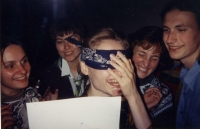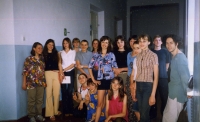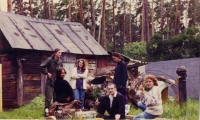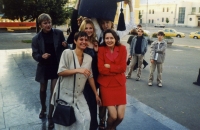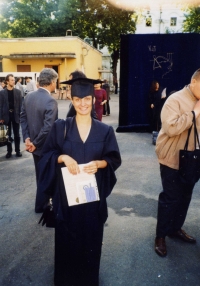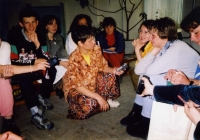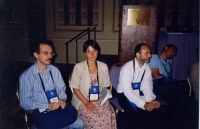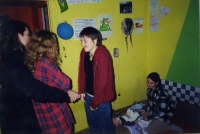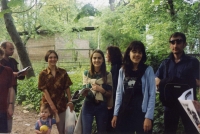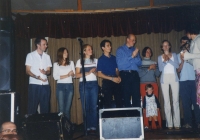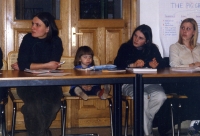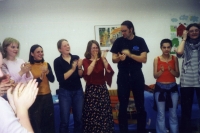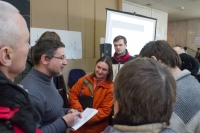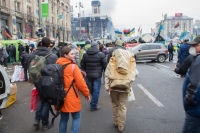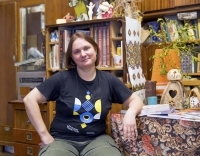The self-organization of communities is a strength

Stáhnout obrázek
Hanna Volodymyrivna Dovbakh was born in Kyiv on August 21, 1976. In 1986, avoiding the consequences of the Chornobyl nuclear power plant accident, the Dovbakh family moved to Karachayevi-Cherkesia (Russia). Since 1988, after returning to Kyiv, Hanna Dovbach and her family took part in the actions of the Ukrainian environmental association “Zelenyi Svit” (Green World), one of the founders of which was her father, Volodymyr Andriiovych, and in December 1990 - in the formation of the unification chain (campaign “Ukrainian wave”). In 1991, she entered the newly established Ukrainian Humanitarian Lyceum at Taras Shevchenko Kyiv National University, which she successfully graduated in 1993. From 1994 to 2000, she simultaneously studied at two universities: Taras Shevchenko Kyiv National University at the Faculty of Psychology and Kyiv-Mohyla Academy National University, majoring in cultural studies. During her student years, she became a participant in anarchist initiatives: the student trade union “Priama Dia” (Direct Action) and the “Tigra Nigra” group. During the preparation of the theatrical action, together with other members of the group, she was detained by law enforcement agencies on charges of using obscene language in a public place. In 1997, together with like-minded people, she created a sobriety organization for socially active youth, which was later named “Club for clubs”. In 2004–2014, she worked at the International HIV/AIDS Alliance in Ukraine, developing the direction of self-organization and community mobilization. Since 2014, she has been living in Vilnius and working at the Eurasian Harm Reduction Association (Lithuania) as an executive director, engaged in organizing communities and supporting public movements for a non-repressive drug policy.
